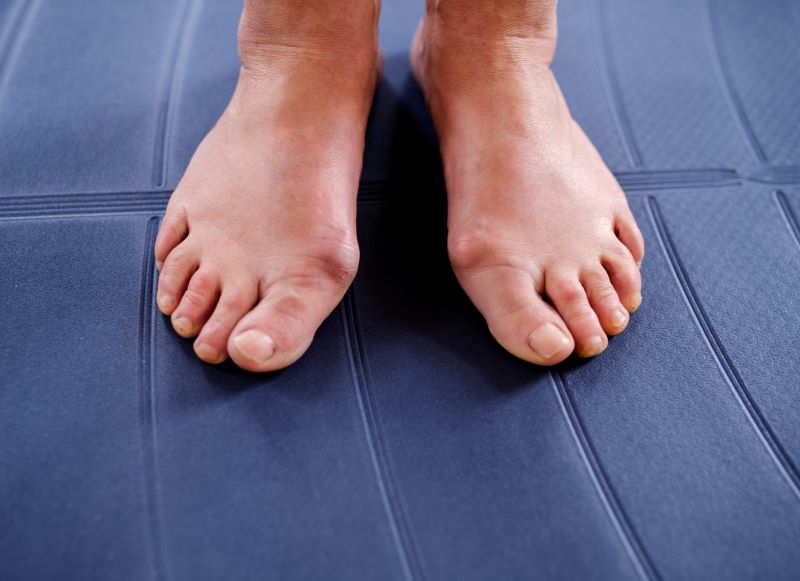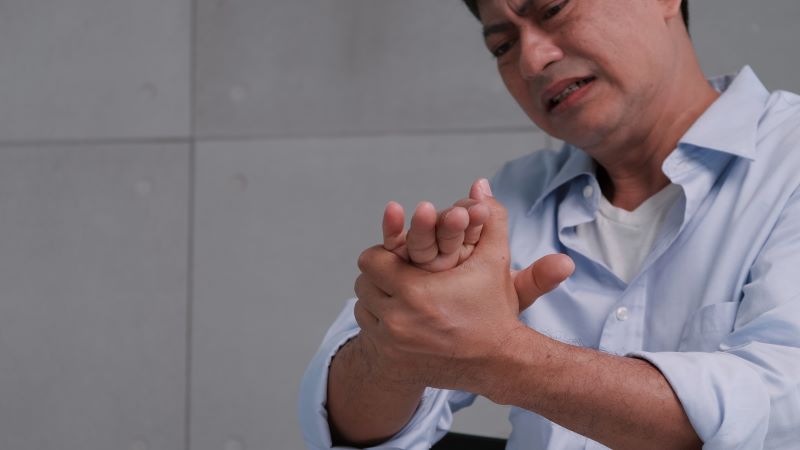Have you ever had a wart that refuses to go away? While warts generally tend to be harmless, they can also be ugly and annoying. In some cases, like when warts appear on the bottom of the feet, they can turn painful. Warts on the bottoms or sides of the feet can make walking and exercise more difficult. Most of the time, warts will go away with time. But maybe you’re tired of waiting. Or maybe you have recurring warts and want them to stop popping up. Getting warts removed can hurt. If you continuously find yourself needing warts removed, you might be looking for better ways to prevent them. Lucky for you, the most effective treatments for preventing warts are actually the least aggressive. In this article, we’ll discuss what vitamin deficiency causes warts, what vitamins help decrease warts, the plantar wart stages of healing, and where you can find a wart treatment in Algonquin.
 What Are Warts?
What Are Warts?
In order to treat warts, you first need to understand what they are and how they come to be in the first place. The first thing you need to know is that warts are growths on the surface of the skin caused by viruses. They occur when skin cells grow faster than usual due to HPV infection. We all come into contact with HPV quite often but some people are more susceptible to developing warts than others. People who have immune system abnormalities are more likely to develop warts. It’s difficult to tell exactly when a person picks up the virus that creates a wart. This is because the virus resides in the upper layer of the skin. Sometimes the virus could be there for years before developing a wart. The good news is that warts often develop in people who are well and aren’t indicative of any underlying illness.
Since we cannot fully understand why warts appear when they do, there is no real cure. However, there are many treatments for warts that have proved to be fairly effective. In addition to that, warts typically disappear over time even without treatment. Here are the different types of warts that you might get:
Common Warts
These types of warts generally appear on the hands but can be found anywhere on the body. They will look like a raised, rough surface on the skin. The color of common warts can vary from a lighter color to a gray-brown color. Common warts that pop up around fingernails and toenails prove a bit harder to treat than in other places.
Plantar Warts
This is the kind of wart you’ve probably heard about the most. This is because these warts are typically the ones that cause problems for the person who develops them. Plantar warts are only found on the soles of your feet. Sometimes these warts can develop in clusters which are called mosaic warts. They are typically rough and spongy that are pressed flat from walking. Again, the color can vary from gray to brown.
Flat Warts
Flat warts are, as the name suggests, flat. Sometimes they can be slightly raised. These are generally smaller than other warts and appear smooth and pink. Flat warts tend to appear on the face, hands, and shins. These are the least common types of warts. However, when flat warts do appear, it’s usually in large numbers.
 Types of Treatment for Warts
Types of Treatment for Warts
Studies have shown that around 50% of warts go away on their own within a year. Two-thirds of warts tend to go away within two years. However, you might be hoping to get rid of a wart sooner rather than later. Waiting might not be an option, especially if you’ve got a painful plantar wart. Immediate treatment typically produces the best results. Here are some popular treatment options for warts:
Salicylic Acid
Salicylic acid is the main ingredient in aspirin. You can find salicylic acid over the counter in different forms such as liquids and gels.
Vitamins
You might also be wondering what vitamins help decrease warts. Maybe you’re a fan of natural remedies. Or maybe you just want to save money on a visit to the doctor right away. Studies show that people with warts have much lower B12 levels. So, if you’re wondering what vitamin deficiency causes warts, a significant contributor can be B12 deficiency. Several studies also show Zinc to be effective in improving and clearing warts. You can find B12 and Zinc supplements over the counter.
Cryotherapy
Cryotherapy is also known as freezing the wart. A doctor will spray liquid nitrogen onto the wart. This extreme cold burns the skin. In some cases, you might need this treatment several times over the span of weeks.
Zapping and Cutting
This treatment is typically for warts that don’t respond to other treatment options. Your doctor will dry the wart with an electric needle and scrape it away with a medical instrument. Another option similar to zapping and cutting is the removal of the wart with a scalpel.
Plantar Wart Stages of Healing
Plantar warts are the type of warts that are most likely to cause difficulty in your day-to-day life. It’s likely that those who suffer from plantar warts are more likely to want them gone fast. So, what does it look like during the different plantar wart stages of healing? Signs that a plantar wart is gone include:
- The affected area is now smooth (no bumps)
- No black dots in the affected area
- Skin appears lighter in the affected area
- Visible lines of skin cross the affected area
 Wart Treatment in Algonquin, IL
Wart Treatment in Algonquin, IL
At Foot and Ankle Specialists of Illinois, we are dedicated to keeping your feet healthy. Foot health is incredibly important for your overall health. The ability to move around comfortably can often be taken for granted. We know that being able to walk and exercise without experiencing pain can vastly improve your quality of life. So, if you are experiencing plantar warts that get in the way of your ability to walk, contact us for a wart treatment in Algonquin. We deal with all kinds of foot and ankle conditions from plantar warts to sprains to heel and arch issues. We are proud to serve Algonquin, Huntley, Carpentersville, and surrounding areas!

